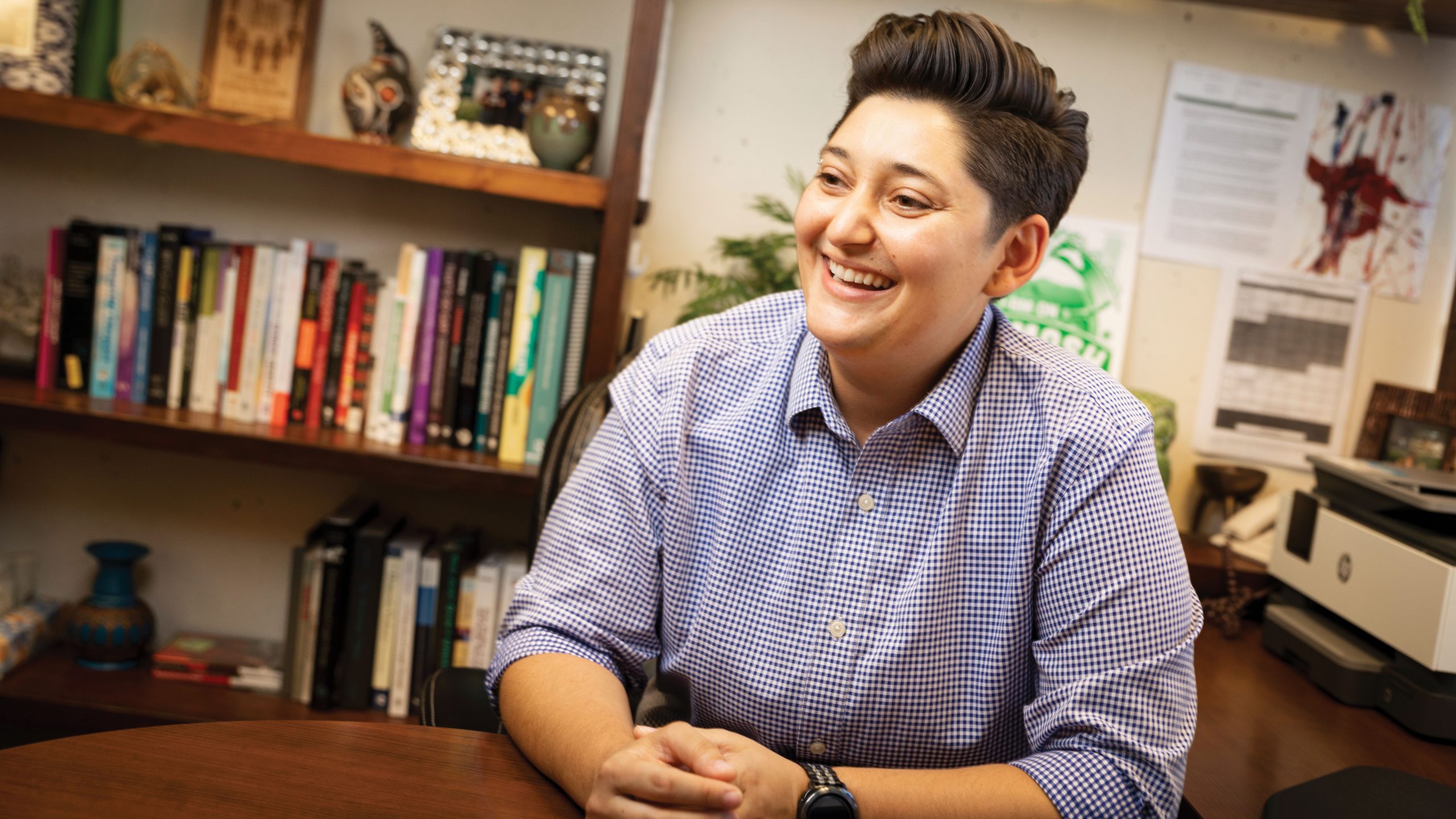
This fall, psychology Professor Jay Bettergarcia launched the SLO ACCEPTance Project, a multiyear series of trainings that equip therapists to better serve the LGBTQ+ community, funded by a grant from the San Luis Obispo County Behavioral Health Department. Bettergarcia runs QCares, a joint faculty-student-community research group focused on LGBTQ+ issues, and spoke with us about why the new training program is so important.
What’s the idea behind this project?
Unfortunately, so many LGBTQ+ people in the San Luis Obispo community are not getting the mental health and counseling services they need — they’re falling through the cracks, or they just can’t find an LGBTQ-affirming provider in the area. They’re traveling long distances to get therapy and counseling, or just not getting the support they need. To fill that gap, we really want to make sure that we have folks here in SLO County who are trained to do this work, to understand the issues unique to lesbian, gay, bisexual and transgender clients. This grant will fund two nine-month training programs over the next four years, taught by experts from Los Angeles and San Francisco.
What’s missing from the way that therapists might be trained in the traditional sense?
Therapists are hopefully well versed in understanding cultural competence — how to understand and effectively work with people who have different cultural identities. Many training programs cover differences in age, race, ethnicity, but we know that LGBTQ+ issues are often not covered well enough. Unfortunately, we’re hearing from people who have contacted counselors who outright say, “I don’t work with LGBTQ+ folks.” Others have told us they met with a therapist who was nice and friendly and clearly wanted to be helpful, but then said all the wrong things or didn’t have the skills or knowledge to help them address their issues. When that happens, the client is often left having to train the therapist on the spot, which is not helpful either.
What’s at risk when someone going in for mental health services can’t find someone who can speak to what they’re going through?
The risk is that people who need mental health services are falling through the cracks. We don’t have enough LGBTQ+ affirming therapists to meet the needs of our community. LGBTQ+ people are often at risk for higher rates of anxiety, depression and suicide because of additional stress or dealing with prejudice and discrimination. People struggling or considering suicide might go without treatment if they can’t find a provider. We know that suicide risk is especially high for LGBTQ+ youth, so what happens if they go to a therapist and even the therapist is not understanding? We see links between mental health and substance abuse. There are a lot of possible negative outcomes when there are too many barriers to people receiving the care they need.
Why is it important that the training happens here?
We are a semi-rural community with a lack of therapists who take insurance or who provide sliding-scale pricing for lower-income patients — much less therapists who are also trained to do LGBTQ+ work. We’ve just heard over and over again from the community that we need to have more folks who are well trained in this area.
What are the ultimate goals of this project?
The goal is to have 50-60 therapists who we will train to provide care, but who will also share their knowledge with others. We’re hoping that they impart some of this knowledge and awareness to other folks in their agencies and colleagues across the county. Overall, we need more therapists who are trained to provide affirming care for our local LGBTQ+ communities, and this grant gives us the opportunity to create this change and support health and wellness for an underserved population.


